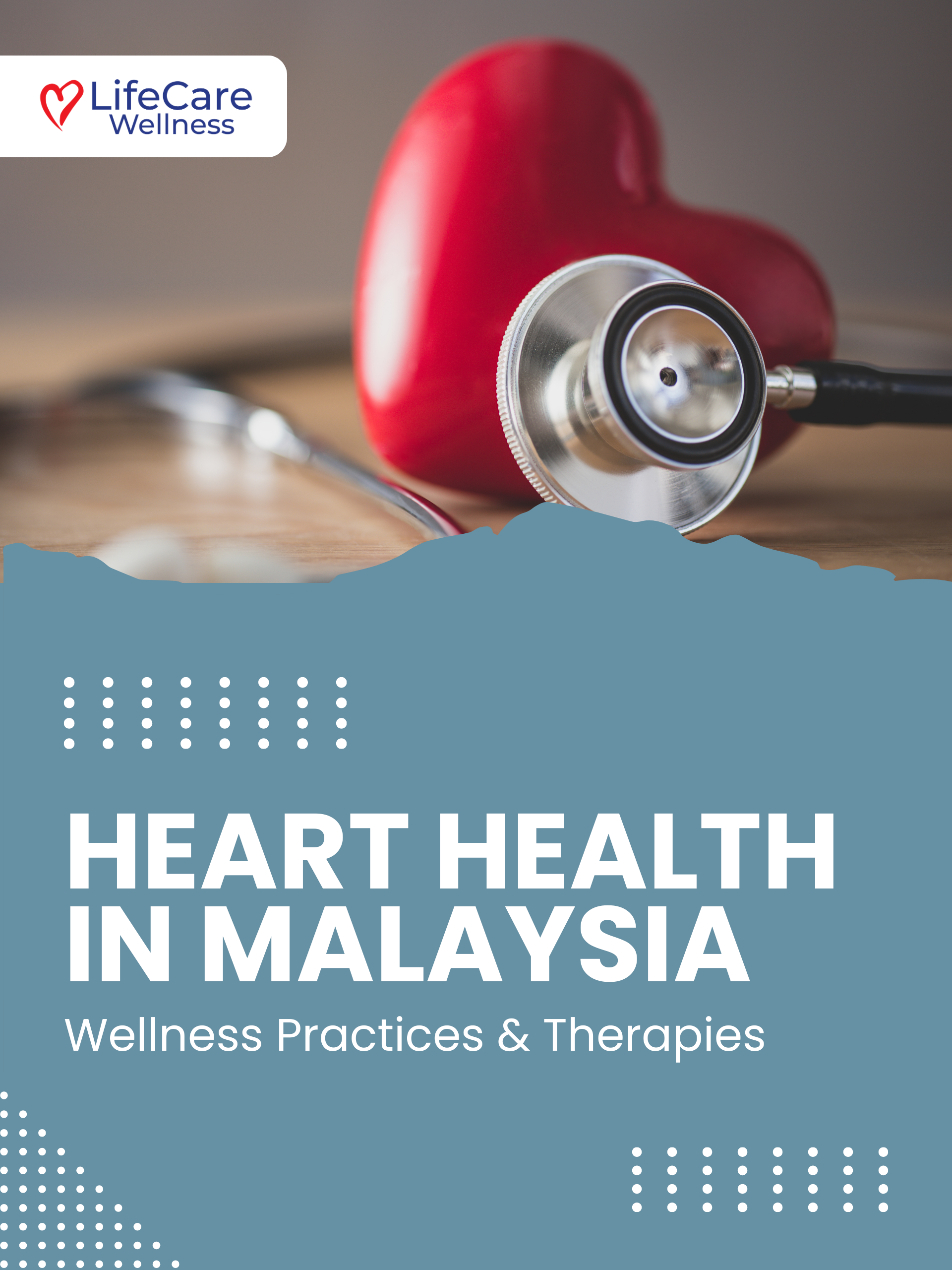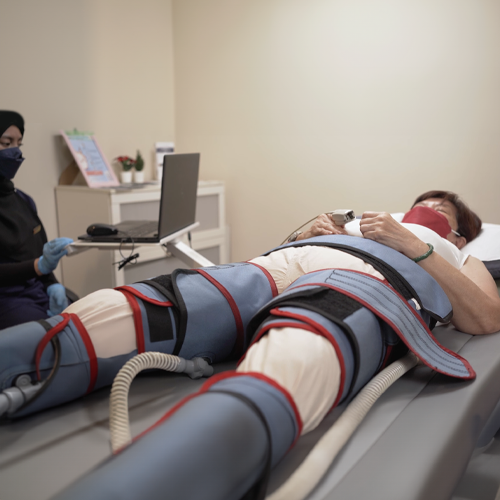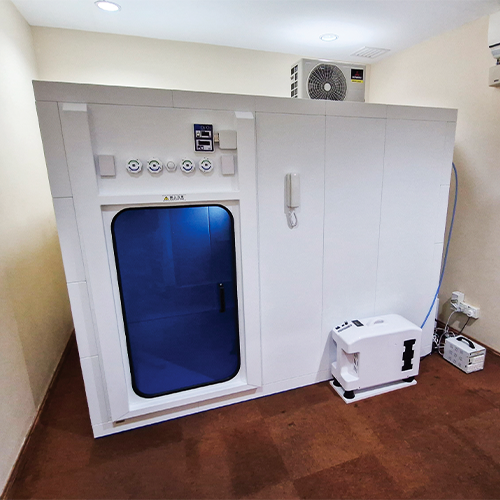

Unlocking Heart Health: Wellness Practices & Innovative Therapies in Malaysia
LifeCare Wellness
13/02/2024
The Importance of Heart Health in Malaysia

Malaysia, like many other nations, faces a significant burden of cardiovascular diseases (CVDs), which encompass a range of conditions affecting the heart and blood vessels. According to data from the Ministry of Health Malaysia, CVDs are the leading cause of mortality in the country, accounting for a substantial proportion of deaths annually. The prevalence of risk factors such as hypertension, diabetes, obesity, and unhealthy lifestyle habits contributes to the increasing incidence of CVDs among Malaysians.
Lifestyle Factors and Heart Health:

Sedentary Lifestyle:
A sedentary lifestyle characterized by physical inactivity is a major risk factor for CVDs. The modern urban lifestyle in Malaysia, marked by long hours of sitting at work, reliance on motorized transportation, and limited recreational physical activities, contributes to the prevalence of sedentary behavior among Malaysians.

Unhealthy Diet:
The Malaysian diet has undergone significant changes in recent decades, with an increasing consumption of processed foods, sugary beverages, and high-fat, high-calorie meals. The traditional Malaysian cuisine, which was once characterized by a variety of fresh fruits, vegetables, and whole grains, has been overshadowed by the convenience and affordability of fast food and processed snacks. This shift in dietary patterns has led to an increase in obesity, hypertension, and other metabolic risk factors associated with CVDs.

Tobacco Use:
Despite efforts to curb tobacco use, smoking remains prevalent in Malaysia, particularly among men. The tobacco industry continues to target vulnerable populations through aggressive marketing strategies, leading to high rates of tobacco consumption and exposure to secondhand smoke. Smoking not only increases the risk of developing CVDs but also exacerbates existing cardiovascular conditions, making it a significant public health concern.

Psychosocial factors such as chronic stress, anxiety, and depression have been linked to an increased risk of CVDs. The fast-paced, competitive nature of modern life in Malaysia contributes to elevated stress levels among individuals, which can negatively impact cardiovascular health. Addressing mental health issues and implementing stress management techniques are essential components of comprehensive heart health promotion strategies.
Wellness Practices for Heart Health in Malaysia

Exercise and Physical Activity:
Regular physical activity is essential for maintaining heart health and preventing CVDs. The Malaysian government has initiated various public health campaigns to promote physical activity and encourage Malaysians to adopt active lifestyles. These efforts include initiatives such as National Sports Day, community-based fitness programs, and the promotion of recreational sports and outdoor activities.

Healthy Eating Habits:
A nutritious diet is fundamental to cardiovascular wellness. The Malaysian Dietary Guidelines recommend a balanced diet that includes a variety of fruits, vegetables, whole grains, and lean proteins while limiting the intake of saturated fats, trans fats, cholesterol, sodium, and added sugars. Public health interventions aimed at improving dietary habits include nutrition education programs, food labeling initiatives, and policies to regulate the marketing of unhealthy foods to children.

Smoking Cessation Programs:
To address the tobacco epidemic, Malaysia has implemented comprehensive tobacco control measures in alignment with the WHO Framework Convention on Tobacco Control (FCTC). These measures include tobacco taxation, smoke-free policies, bans on tobacco advertising and promotion, and public awareness campaigns to encourage smoking cessation. Smoking cessation programs and support services are available to help individuals quit smoking and reduce their risk of CVDs.

Stress Management and Mental Well-being:
Promoting mental well-being and stress management is essential for heart health promotion in Malaysia. The Ministry of Health Malaysia has initiated mental health awareness campaigns and programs to reduce stigma, increase access to mental health services, and promote positive coping strategies. Mindfulness-based stress reduction programs, cognitive-behavioral therapy, and relaxation techniques are among the approaches recommended for managing stress and improving mental well-being.
Innovative Therapies for Cardiovascular Wellness in Malaysia

External Counterpulsation (ECP) Therapy:
ECP therapy is a non-invasive treatment option for individuals with ischemic heart disease, angina, and other cardiovascular conditions. This therapy involves the use of inflatable cuffs or boots placed around the lower limbs, which are inflated and deflated in synchronization with the cardiac cycle to enhance coronary blood flow and myocardial perfusion. ECP therapy has been shown to improve symptoms, functional capacity, and quality of life in patients with refractory angina and chronic heart failure.

Wellness Hyperbaric Oxygen Therapy (HBOT):
Wellness HBOT is a treatment that involves breathing pure oxygen in a pressurized chamber, which increases the oxygen content in the bloodstream and tissues. This therapy promotes tissue oxygenation, reduces inflammation, and enhances wound healing and tissue repair processes. Studies suggest potential benefits in improving tissue oxygenation, reducing oxidative stress, and enhancing vascular function.
Integrative Approaches to Cardiovascular Wellness:
In addition to conventional medical therapies, integrative approaches to cardiovascular wellness emphasize the importance of addressing lifestyle factors and utilizing complementary and alternative modalities to optimize heart health. Integrative cardiology encompasses a holistic approach to cardiovascular care that integrates conventional medical treatments with evidence-based lifestyle interventions, mind-body practices, nutritional therapies, and select complementary therapies. By addressing the root causes of cardiovascular disease and promoting holistic well-being, integrative cardiology aims to improve cardiovascular outcomes, enhance quality of life, and empower individuals to take an active role in their heart health.



